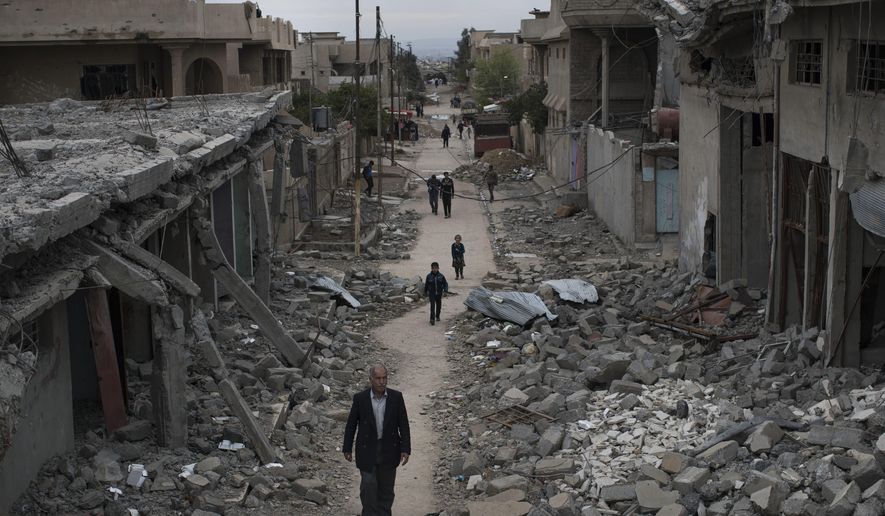Secretary of Defense Lloyd Austin on Thursday ordered the Pentagon to develop a plan to prevent civilian casualties during future armed conflicts where U.S. troops are involved.
Military officials have 90 days to implement the Civilian Harm Mitigation and Response Plan and outline the steps needed to support and implement recommendations from a recently-completed study from the RAND Corporation.
“We will revisit the ways in which we assess incidents that may have resulted in civilian harm, acknowledge the harm to civilians that resulted from such incidents, and incorporate lessons learned into the planning and execution of future combat operations and into our own tactics, techniques, and procedures,” Mr. Austin said in the statement released Thursday.
In their report, RAND analysts concluded combatant commanders are unprepared to address civilian-harm issues during their planning for high-intensity conflict against near-peer adversaries such as Russia and China. They also said the military’s data and records that support assessments of civilian harm can be incomplete.
The RAND researchers said the Defense Department isn’t organized to monitor and analyze civilian casualty trends and patterns over time.
“Intelligence efforts focus on the enemy, limiting the resources available to understand the broader civilian picture,” the researchers said. “There are not enough personnel dedicated to civilian-harm issues full time, and those who are responsible for civilian-harm issues often receive minimal training on the duties that they are expected to perform.”
Secretary Austin also ordered the creation of a “civilian protection center of excellence” that would “better expedite and institutionalize the advancements of our knowledge, practices, and tools for preventing, mitigating and responding to civilian harm,” according to a statement from the Pentagon.
The RAND report was mandated by the Fiscal Year 2020 National Defense Authorization Act.
Sen. Jack Reed, the Rhode Island Democrat who chairs the Senate Armed Services Committee, said he was encouraged by Mr. Austin’s “personal involvement” in the issue and the priority he has placed on it.
“The U.S. military goes to great lengths to avoid civilian casualties. When tragic errors occur on the battlefield, the United States has an obligation to be transparent, take responsibility, and do everything we can to learn from and prevent future mistakes,” the senator said in a statement.
The new Defense Department policy on mitigating and reducing civilian casualties builds on efforts such as those from the RAND study. But its purpose is not merely to address other incidents that have previously been investigated, a senior Pentagon official told reporters on Thursday.
“The purpose is to make this the right approach and build it into the strategic level and all the way down to the operational level,” the defense official said. “This is a big department and we’re trying to get this right. Building in accountability in an institution takes a long time — often it takes a year to do.”
The policy change ordered by Mr. Austin also would mean standardizing and improving the process of how the department collects, shares, and learns from data related to civilian harm.
“The protection of innocent civilians in the conduct of operations remains vital to the ultimate success of our operations and is a significant strategic and moral imperative,” the Pentagon said in a statement.
• Mike Glenn can be reached at mglenn@washingtontimes.com.




Please read our comment policy before commenting.